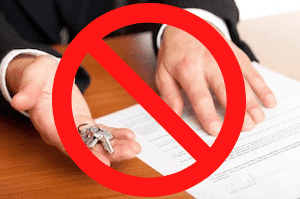Trustee Selling Trust Property to her Husband- Is the Sale Valid, Can She Be Removed and is there a Surcharge

An trustee selling trust property to herself, her husband, or any entity under his control is considered self-dealing. Upon challenge by the beneficiary, the court will immediately set aside this transaction under the “no further inquiry” rule without even delving into the merits of the sale.
Is the transaction valid?
The self-dealing sale of an trustee is presumed valid, unless it is challenged by the beneficiary. One it is challenged by the beneficiary, the court will proceed to determine whether the transaction is self-dealing. If the trustee, administrator, or trustee sold trust or trust property to herself, her husband, or an entity she controls, it is self-dealing. The courts will immediately apply the “no further inquiry rule” and set the sale aside without even delving into the merits of the transaction.
Exceptions to the self-dealing rule
The courts do not consider the following as self-dealing transactions: (1) when the trust allows the trustee to engage in self-dealing; (2) when the court, after conducting a full exploration of the facts and permitting the trust beneficiaries to object, approves the transaction; and (3) with the consent of the trust beneficiaries. Kleeberg v. Eber, 16-CV-9517 (LAK) (KHP) (S.D.N.Y. Aug. 10, 2020). In Flaum v. Birnbaum, 120 A.D.2d 183 (N.Y. App. Div. 1986), however, the court held that, even with the consent of the beneficiaries, the self-dealing transaction is still voidable if the trustee fails to disclose material facts which she knew or should have known, or if she used the influence of his position to induce the consent or if the transaction was not in all respects fair and reasonable.
Can you remove the trustee for selling trust property to her husband?
Yes, the trustee can be removed for selling trust property to her husband. Even if the sale was for market value, the trustee still committed a prohibited self-dealing transaction and can be removed for misconduct and dishonesty. If the sale was under market value, the trustee’s letters can be revoked because she wasted and improperly applied trust assets. A co-fiduciary, creditor, beneficiary, interested person, surety, or guardian of an interested person can file the petition to suspend, modify, or revoke the letters, or remove for disqualification or misconduct.
Other grounds for removal of an trustee are conflict of interest, commingling or mismanagement of trust assets, failing to maintain trust records or to pay trust obligations or to comply with court orders or to file an accounting or to collect trust assets, making false representations of material facts, wasteful litigation, and substance abuse, to name a few.
Can you get a surcharge?
A surcharge is a charge imposed by the court to be paid by the fiduciary (trustee, administrator, or trustee) from his personal funds based on losses incurred by the trust or trust due to the fiduciary’s negligence or misconduct.
In order to prove entitlement to surcharge, one must prove that the trust suffered losses due to the fiduciary’s negligence or misconduct. To prove that the sale to the husband financially damaged the trust, one must show a third-party independent appraisal of the property showing a higher amount than the sale price. This will be sufficient evidence to surcharge the trustee with the amount of loss.
If you are an interested party who suspects that the trustee has committed self-dealing transactions or has caused financial losses to the trust, we, at the Law Offices of Albert Goodwin, are here for you. You can call us at 1-800-600-8267 or send us an email at [email protected].
